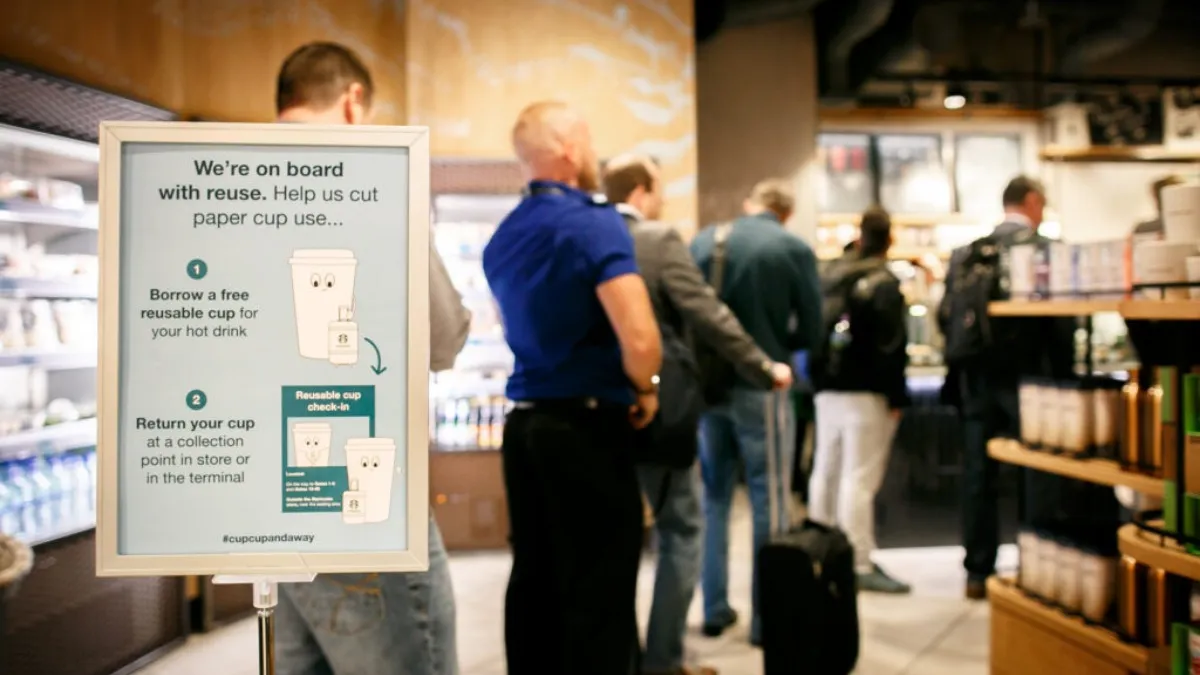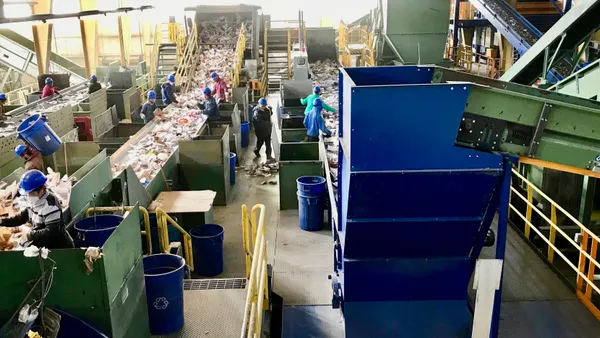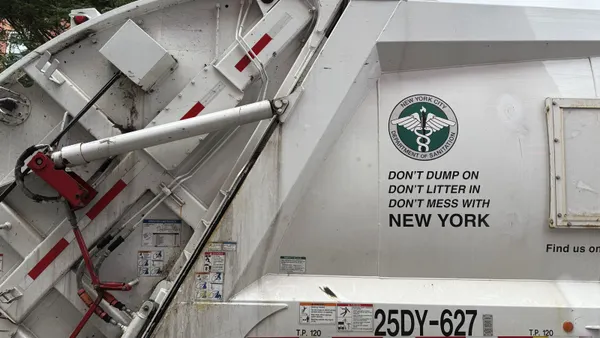Dive Brief:
- Starbucks is tasking its London Gatwick airport locations with a reusable cup pilot, reports BNN Bloomberg. Customers will have the option of paying a six-cent surcharge for a regular disposable cup or opting for a free reusable cup. The trial — a partnership with nonprofit Hubbub — will use 2,000 reusable cups.
- The company will monitor the number of returned cups and test different collection points to maximize participation. Just 250 customers opting for a reusable cup could save more than 7,000 disposable cups during the month-long trial, according to Starbucks.
- Dunkin' also remains on track to eliminate polystyrene foam cups from its 9,000 stores by the end of the year, according to a company announcement. The retailer will instead supply double-walled paper cups made with certified sustainable materials.
Dive Insight:
Customers are willing to pay more for sustainable packaging, and Starbucks is one of the biggest players capitalizing on that trend in the restaurant space. It recently secured a $1 billion sustainability bond, announs plans to power 3,000 store locations with clean energy by 2021, and launched a $1.3 million "Cup Fund" to expand and improve paper cup recycling programs throughout the U.K. It's also running a pilot for a recyclable and compostable cup in major U.S. cities, on top of offering strawless plastic lids to stores in the U.S. and Canada throughout this year.
Dunkin', which made a Feb. 2018 announcement to eliminate polystyrene foam cups worldwide by 2020, has also been hot on the sustainable packaging trail. The company is using the Sustainable Forestry Initiative Standard to certify its fiber-based packaging choices while also creating more energy efficient stores.
Other restaurants are picking up on consumers' desire to swap out single-use products. A number of cafes in Boulder, Colorado have started a mug-share program that allows customers to exchange stainless steel mugs at other participating cafes or at drop-off kiosks.
Yum Brands' KFC is sourcing more sustainable packaging and joined fellow banners Taco Bell and Pizza Hut in the NextGen Consortium, which is geared toward finding more sustainable packaging solutions in food service. McDonald's, one of the consortium leaders, is hoping to eliminate polystyrene foam packaging globally by the end of 2019.
Part of the pressure toward finding reusable and sustainable alternatives comes from a wave of legal efforts to ban plastic bags, plastic straws and polystyrene foam food containers. Cities such as Washington D.C. and Seattle have banned plastic straws, while Maine recently became the first state to ban polystyrene foam containers. The European Union is on its way to one of the biggest commitments in this arena: a forthcoming 2021 ban that covers plastic straws, cutlery, plates, stirrers and more.










